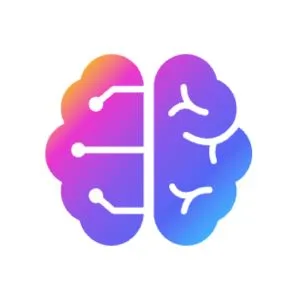Are you wondering how the benefits of AI Assistant software can transform your business? In a world where technology is evolving at breakneck speed, staying competitive is essential. In this article, we'll take a look at how these intelligent assistants can revolutionize your operations and take your business to new heights.
What is an AI assistant?
An AI assistant is much more than just a computer program. It is a tool with cognitive abilities similar to those of humans, such as natural language understanding, voice and facial recognition, and the ability to learn new information in real time. Thanks to advances in deep learning and using natural language processing, AI assistants can analyze vast data sets, identify trends, and provide valuable insights.
In business, AI assistants take various forms: chatbots for customer support, virtual assistants for managing internal tasks, or even predictive analysis software to anticipate market trends. Their main objective is to simplify processes, reduce costs, and improve decision-making.
What are the benefits of AI assistants?
The benefits of AI assistants are multiple and affect almost every aspect of the business:
- Productivity improvement: By delegating repetitive tasks to AI assistants, employees can focus on higher value-added activities. This results in an increase in productivity of up to 50%.
- Cost reduction: Automation makes it possible to reduce operational expenses. According to a study, businesses can save up to 30% on their annual operational costs.
- Informed decision making: AI assistants provide real-time data analytics, helping leaders make strategic decisions based on accurate information.
- Customizing the customer experience: By analyzing customer behaviors and preferences, AI assistants can offer personalized recommendations, increasing sales of 25%.
- Constant availability: Unlike humans, AI assistants can work 24/7 without interruption, ensuring continuous service.
Use in businesses
Sectors that benefit the most from AI assistants include:
Customer service: Businesses use chatbots to manage frequent requests, resolve issues quickly, and free up agents to deal with more complex cases. For example, one company reported a reduction of 70% support calls after the integration of an AI chatbot.
Human resources: AI assistants can automate the hiring process by filtering resumes, scheduling interviews, and answering candidate questions, reducing the recruitment time of 60%.
Marketing: AI helps analyze campaigns, segment audiences, and personalize marketing messages, which can increase the conversion rate of 35%.
Impact on customer relationships
Today's consumers expect answers that are quick and relevant. AI assistants enable businesses to meet this expectation. By providing instant and personalized service, they improve the overall customer experience. In addition, they can manage multiple interactions simultaneously, ensuring efficiency that human teams cannot match.
Data shows that businesses that use AI assistants for customer service see an increase in customer satisfaction by 85%, and an improvement in customer retention of 50%.
Challenges and limitations
Despite the benefits, it's important to recognize the challenges associated with adopting AI assistants:
- Initial investment: Developing and integrating AI solutions can be expensive. Businesses need to assess the potential return on investment before getting started.
- Employee training: The introduction of AI requires adequate training so that staff can effectively interact with these new systems.
- Ethical concerns: The use of AI raises questions about data privacy, algorithmic bias, and the transparency of decisions made by machines.
- Resistance to change: Some employees may be worried that AI will replace their jobs. It is crucial to clearly communicate the role of AI as a complementary tool rather than a substitute.
Future of AI in software
AI is set to become a central element of business strategy. Future innovations include advanced conversational AI, capable of understanding context and emotions, and the integration of AI with theInternet of Things (IoT) to create fully connected ecosystems. It is expected that by 2025, more than 80% Businesses will use AI in one form or another.
How to choose the best AI assistant for your needs
To get the most out of AI assistants, it's important to choose the right solution:
- Assess specific needs: Identify areas where AI can have the most impact.
- Consider scalability: Make sure the solution can grow with your business.
- Verify integration: The software should be able to be easily integrated into your existing systems.
- Analyze the total cost: Beyond the purchase price, consider maintenance, training, and support costs.
- Look for ease of use: An intuitive interface will encourage employee adoption.
Key takeaways
The adoption of AI assistants is more than just a passing trend; it's a major shift in the way businesses operate. The benefits include increased productivity, better customer satisfaction, and more informed decision making. However, careful implementation planning is essential to overcome potential challenges.
By investing in AI Assistant software, you are setting your business up for success in a world in constant technological change. Don't let your competitors get a head start; start exploring your options today.
Conclusion
Les Benefits of AI Assistant software Rare undeniable. They offer innovative solutions to improve efficiency, reduce costs, and strengthen customer relationships. As we move towards an increasingly digital future, adopting AI is no longer an option, but a necessity to remain competitive. Take the time to assess how these tools can fit into your business and take advantage of this technology to transform your operations.
























































